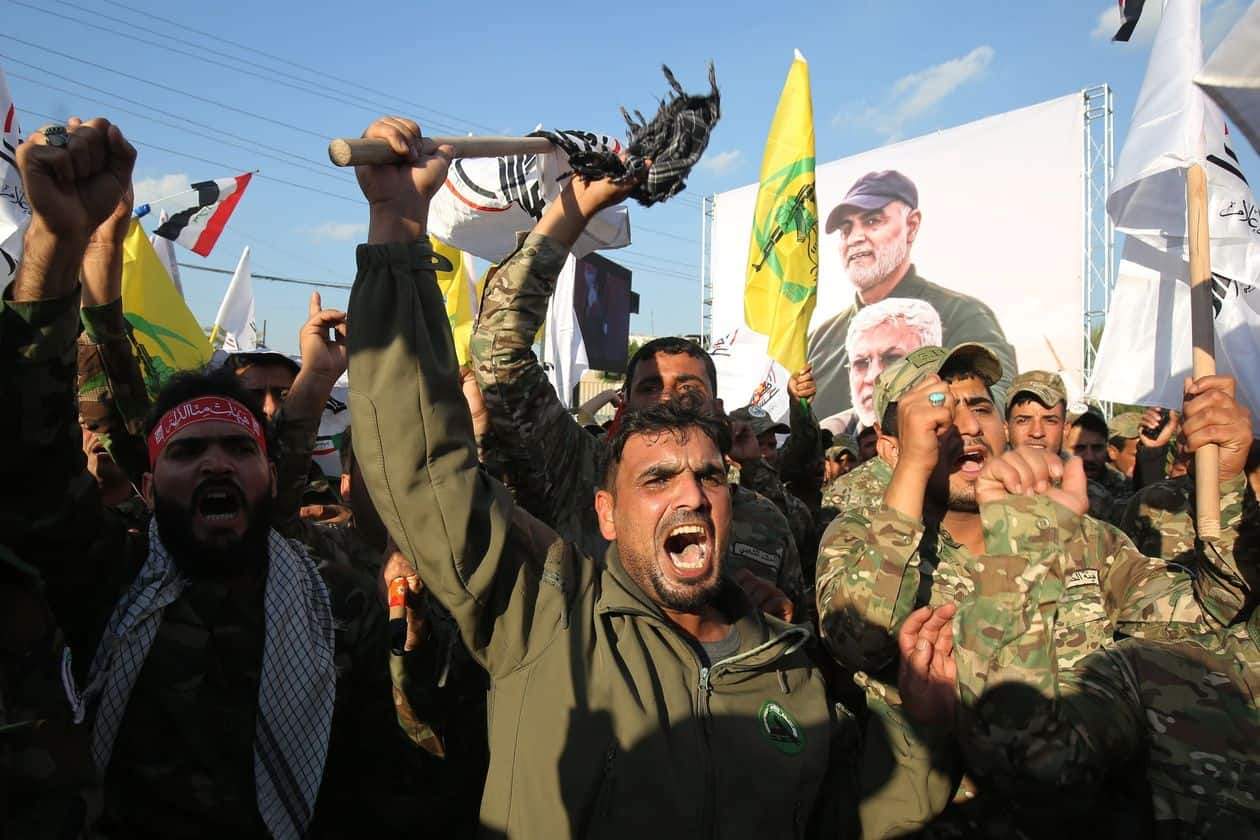U.S. Sanctions Senior Iraqi Official for Role in Iran-Linked Rights Abuses

The U.S. imposed sanctions Friday on a senior Iraqi official for his link to human-rights abuses by Iran-backed militias, as the Trump administration continues its campaign to isolate Tehran during the president’s final weeks in office.
The official, Faleh al-Fayyadh, is chairman of the Popular Mobilization Forces, an umbrella for several dozen Iraqi paramilitary groups including powerful factions with close ideological and operational ties to Tehran.
He is the most senior Iraqi official to be blacklisted by Washington, which has deployed sanctions in its efforts to curb Iran’s influence in Iraq and the region.
Secretary of State Mike Pompeo said Mr. Fayyadh was part of a crisis cell comprised primarily of militia leaders formed in late 2019 to suppress antigovernment protests with the support of Iran’s Islamic Revolutionary Guard Corps.
Weeks before the protests broke out, Mr. Fayyadh had been invited to Washington, where he met with then-Defense Secretary Mark Esper.
More than 600 Iraqis were killed in the violent response to the protests, which demanded a complete overhaul of the political system and an end to Iran’s interference, according to the Iraqi Human Rights Commission.
“By directing and supervising the murder of peaceful Iraqi demonstrators, Iran-aligned militants and politicians such as Falih al-Fayyadh have been waging a violent campaign against Iraqi democracy and civil society,” said Treasury Secretary Steven Mnuchin.
He blamed Iran-backed militias for a continuing campaign of threats and assassinations that has driven many Iraqi political activists into exile or hiding.
The Trump administration’s campaign of “maximum pressure” against Tehran has increasingly polarized Iraq between pro-Iranian factions invested in the status quo and those who oppose it.
Pro-Iranian factions congratulated Mr. Fayyadh on his designation and the Popular Mobilization Forces media department described it as a badge of pride.
Tehran and its allies are marking a year since the targeted killing of Iranian Maj. Gen. Qassem Soleimani and an Iraqi paramilitary commander in a U.S. drone strike on their convoy in Baghdad. Despite threats of violence against Americans in the run-up to the Jan. 3 anniversary, Iran-backed militias have so far refrained from attacking U.S. troops or diplomats. The U.S. had warned of an overwhelming response in the event any harm was done to its personnel.
On Friday, Mr. Fayyadh told a rally in the southern city of Basra that the price for the “crime” of killing Gen. Soleimani and the Iraqi commander, Abu Mahdi al-Mohandes, was the expulsion of foreign forces from Iraq.
A top Iraqi investigative court on Thursday issued an arrest warrant for President Trump for his role in commissioning the killings. An official within the judiciary said unless Mr. Trump came to Iraq it would be difficult to implement the warrant.
The Popular Mobilization Forces is an official government body that answers to the commander-in-chief and receives a share of the Iraqi budget to pay the salaries of militia members.
But many of the groups under the umbrella also have fighters off the payroll, blurring the line between official security forces and militias outside the law.
Photo: A Baghdad protest Wednesday marked the anniversary of the Jan. 3, 2020 killing of Iranian and Iraqi commanders in a U.S. drone strike. - AHMAD AL-RUBAYE/AGENCE FRANCE-PRESSE/GETTY IMAGES
Link: U.S. Sanctions Senior Iraqi Official for Role in Iran-Linked Rights Abuses - WSJ











